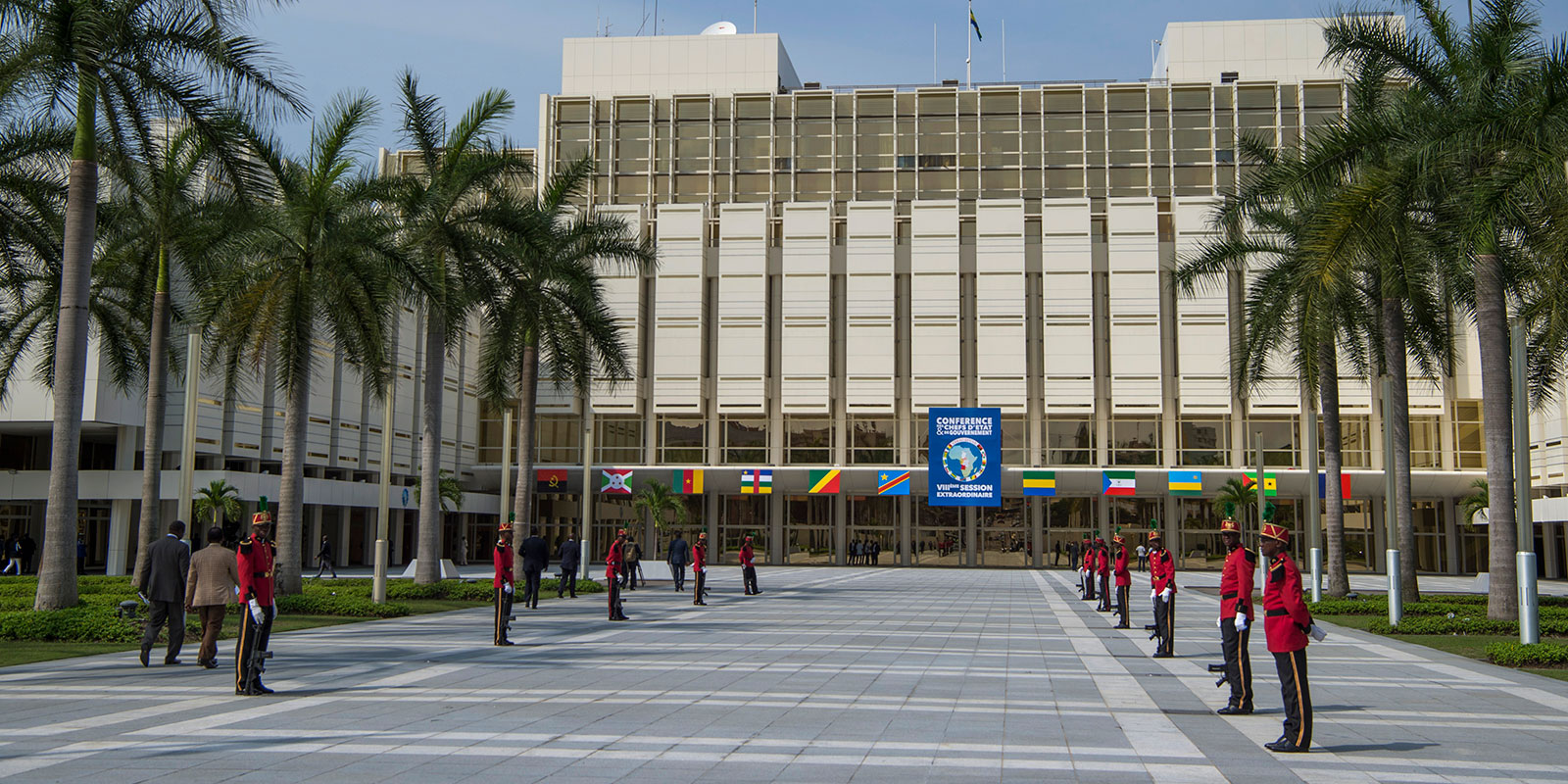One year later, as of 5 April 2021, a total of 178 022 cases have been confirmed in the ECCAS sub-region, including 3 011 deaths. This situation makes this pandemic one of the deadliest of the century worldwide, especially given its socio-economic impact to our countries. The situation of the COVID-19 pandemic at the global level remains alarming with waves of new contaminations observed since the beginning of 2021. Moreover, the discovery of new highly contagious variants of the virus across the world worsens the situation and drains national, regional and collective response capacities.
Synchronization of vaccination between ECCAS Member States will build trust between countries, promote the return to normal exchanges and contribute to prevention of possible conflicts. @yngandu
Tweet
Actions taken by ECCAS to face the pandemic
As a contribution to the response against COVID-19, various ECCAS organs were mobilized for the following actions:
- Development of a Regional Response Plan: in March 2020, the ECCAS Commission developed a holistic multisectoral situational analysis paper on the impact of COVID 19 on cross-cutting issues, as well as a COVID-19 response strategy against the pandemic which revolves around four strategic axes, including prevention of the transmission, deaths or case management; mitigating the social, economic and security effects associated with COVID-19 and preventing cross border transmission;
- Convening the ECCAS Ministerial Meeting on health on 24 June 2020. This virtual meeting allowed the establishment of a common and effective strategy to deal with the COVID-19 pandemic. Following the meeting of experts which examined in advance the key essential points of this global strategy to enable the Central Africa sub-region to better face the COVID-19 pandemic and to cope with its effects; the Ministers responsible for health in ECCAS member states decided to validate the said strategy on 24 June 2020.
- Adoption of the sub-regional pandemic response strategy during the 17th Ordinary Session of the ECCAS Conference of Heads of State and Government held on 30 July 2020 by videoconference.
- As part of its efforts to monitor the implementation of the Regional Response Plan, the ECCAS Commission has put in place a technical Health Task Force, with the support of experts of the Regional Diseases Surveillance System Enhancement in Central Africa (REDISSE IV) Project, which regularly analyses monthly trends for cases and deaths due to COVID-19 in the ECCAS sub-region with proposals for action.
- The regional pandemic surveillance has prompted the ECCAS Commission to deploy its technical support teams to the Republic of Angola, first, following an audience granted by His Excellency Joao Manuel GONCALVES LORENZO, President of the Angolan Republic, to a strong delegation from the ECCAS Commission headed by His Excellency Ambassador Gilberto DA PIEDADE VERISSIMO, President of the ECCAS Commission, accompanied by Commissioners Yvette Ngandu (Gender, Human and Social Development) and François Kanimba (Common Market), cognisant that this country had not yet reached the first peak at the beginning of October 2020 unlike the other countries of the ECCAS sub-region. It is in this context, therefore, that a statutory technical support mission of ECCAS was organised and carried out in Angola in November 2020. Similar monitoring and support efforts are underway in other ECCAS countries.
- As part of the ECCAS Border Support Project, ECCAS received funding from GiZ to support preventive actions against COVID-19 at the borders of 8 countries in the ECCAS sub-region. This project also intervenes within the framework of the resolution of border conflicts which have been accentuated with the occurrence of COVID-19. Indeed, accusations against truckers on the corridors and against staff of international organisations and peacekeepers increased among the populations on the borders of the countries.
Planned actions
Vaccination against the COVID-19 pandemic appears to be the long-term solution. Currently, several countries, including those in the ECCAS sub-region, have started vaccinating their populations against the pandemic starting with those with high risks. However, to ensure vaccine efficacy at the community level, synchronization of the approach in all the countries of the sub-region is required. In this context, the ECCAS Commission will convene a meeting of Ministers responsible for health in ECCAS member States to discuss the vaccine strategy with a view to synchronizing vaccination against COVID-19 in the sub-region. Synchronization of vaccination between countries will build trust between countries and promote the return to normal exchanges between countries and contribute to prevention of possible conflicts.
The Way Forward
In addition to the vaccination strategy, the COVID-19 pandemic has exposed the existing health gaps and challenges in the sub-region, and has especially underscored the importance of setting up a regional health coordination structure in Central Africa: the Organization for Health in Central African Sub-region (OSAC), which member states had committed to establish a decade ago. The new leadership of the ECCAS Commission is intent on correcting this gap by expediting the process of implementing this long-standing ECCAS Decision. Setting up its own regional health organization, which will allow the Commission to help its member countries to respond effectively to epidemics/pandemics, as well as to other health issues in the sub-region, similar to ECOWAS. To date, a tripartite WHO-Africa CDC and CEEAC commission has been formed to support this process. In addition to this, in the context of involving existing health institutions in the ECCAS sub-region in the process of the OSAC establishment, a joint mission of ECCAS and the World Health Organisation (WHO) is underway to meet and discuss with the team of the Organization of Coordination and Cooperation for the fight against Major Endemic Diseases in Central Africa (OCEAC), which is the Executing Agency of the Economic and Monetary Community of Central Africa (CEMAC) in the field of Health, with headquarters in Yaoundé covering six countries in Central Africa.
Her Excellency Ms Kapinga Yvette Ngandu, is the Commissioner, Gender, Human and Social Development, Commission of the Economic Community of Central African States (ECCAS)


